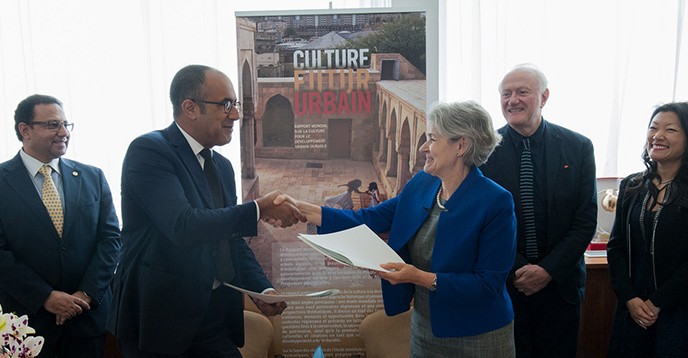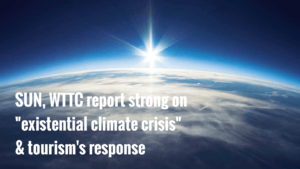UNESCO, World Bank commit to urban development, culture, resilience

Irina Bokova, Director-General of the United Nations Educational, Scientific and Cultural Organization (UNESCO), declared: “Culture and a people-centered approach are central to building the urban future we want and ensuring sustainable development. This renewed commitment by a long-standing UNESCO-World Bank partnership brings to the forefront of the global discussion the critical role that culture plays in supporting countries in achieving the Sustainable Development Goals and the New Urban Agenda.”
It is estimated that two-thirds of the global population will live in cities by 2050. Thus the MoU is supposed to take into account of the urban dimension of sustainable development.
“[The MoU] expresses the commitment of both institutions to maximise the benefits of safeguarding cultural heritage and promoting creativity for sustainable development through three strategic areas of action: Historic urban landscapes and urban regeneration; Cultural and creative industries; and Resilience and disaster risk management.”
Sameh Wahba, Director of the Social, Urban, Rural and Resilience Global Practice of the World Bank, stressed that “culture matters for sustainable urban development. It’s essential for building inclusive, resilient, productive, and sustainable cities and communities for all.”
UNESCO and the World Bank say they will, over the next six years, “engage in developing global knowledge, common policy guidance, country-level operations and emergency responses to enhance sustainable urban development and address post-disaster and post-conflict situations building on cultural heritage and creativity as resources and assets”.
Their renewed collaboration takes place in a world where “26 million people fall into poverty each year as a result of natural disasters, while conflicts wreak havoc with cultural heritage and communities”.
The agreement coincides with the Year of Sustainable Tourism for Development and the “need to ensure that the $1.8 billion revenue the sector is expected to generate by 2030 contributes to sustainability and the preservation of tangible and intangible heritage”.
The MoU also foresees work to “support cultural diversity and the creative industries, which generate US$2.25 billion in revenues and create 29.5 million jobs worldwide. Promoting cultural diversity has a direct impact on socio-economic development and supports the competitiveness of cities, notably in developing countries.”
Download the UNESCO/World Bank MoU (PDF 352 KB).
Featured image: Sameh Wahba, Director of the Social, Urban, Rural and Resilience Global Practice of the World Bank (left) and Irina Bokova, Director-General of UNESCO, shake hands upon signing the MoU. Source: UNESCO/World Bank.
Related posts





